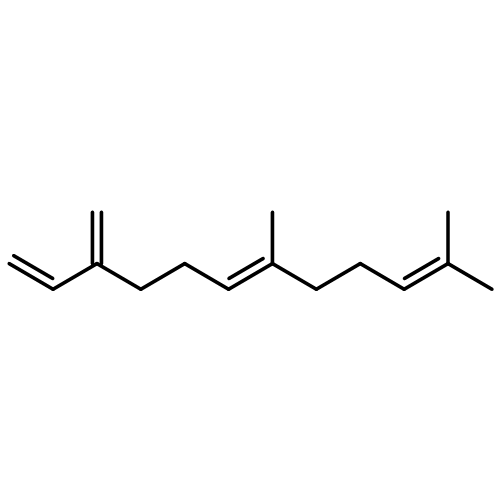Genome sequence analysis of Ricinus communis has indicated the presence of at least 22 putative terpene synthase (TPS) genes, 13 of which appear to encode sesquiterpene synthases (SeTPSs); however, no SeTPS genes have been isolated from this plant to date. cDNAs were recovered for six SeTPS candidates, and these were subjected to characterization in vivo and in vitro. The RcSeTPS candidates were expressed in either Escherichia coli or Saccharomyces cerevisiae strains with engineered sesquiterpene biosynthetic pathways, but only two (RcSeTPS1 and RcSeTPS7) produced detectable levels of product. In order to check whether the engineered microbial hosts were adequately engineered for sesquiterpene production, a selection of SeTPS genes was chosen from other plant species and demonstrated consistently high sesquiterpene titers. Activity could be demonstrated in vitro for two of the RcSeTPS candidates (RcSeTPS5 and RcSeTPS10) that were not observed to be functional in our microbial hosts. RcSeTPS1 produced two products, (−)-α-copaene and (+)-δ-cadinene, while RcSeTPS7 produced a single product, (E, E)-α-farnesene. Both RcSeTPS5 and RcSeTPS10 produced multiple sesquiterpenes.Graphical abstractFour sesquiterpene synthases (SeTPSs) from Ricinus communis were characterized and represent the first examples of SeTPSs from the Euphorbiaceae. Challenges faced in the isolation and functional expression of cDNAs for all putative SeTPSs in the R. communis genome are described.

Highlights► Analysis of Ricinus communis establishes up to 13 putative sesquiterpene synthases (SeTPSs). ► Only four of the recovered cDNAs were found to produce sesquiterpene products. ► Production levels in engineered microbial hosts were low compared to other plant SeTPSs. ► Verified products include (−)-α-copaene, (+)-δ-cadinene, and (E, E)-α-farnesene.
